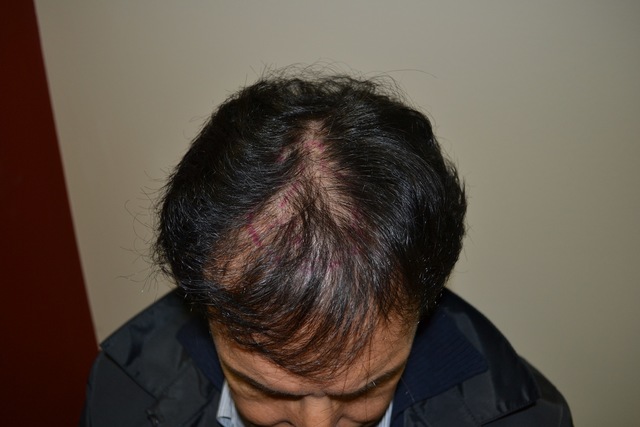Hair Transplants can be a great way to boost confidence, helping you look and feel better for your age. Hair Transplants can also be done badly – something we wanted people to know how to avoid. We have put together 10 things you should know before having a hair transplant and why you should choose The Private Clinic for your FUE hair transplant.
1. FUE vs. FUT – The Two Most Popular Procedures
There are two main types of hair transplant procedures that clinics offer – FUE (Follicular Unit Extraction) and FUT (Follicular Unit Transplantation a.k.a the ‘Strip’ method).
The FUT method is older and involves cutting and removing a strip of skin and hair on your scalp. From there it is divided up and transplanted into the balding or thinning areas. It leaves a scar at the donor site, which can be covered by hair, and requires a lengthy aftercare schedule.
The more recent FUE method utilises the advances made in the field and makes small incisions around each hair follicle unit, which is then prepared and transplanted to the balding or thinning area. There is little downtime and aftercare required but it takes longer than the FUT method – something that raises the cost. Our medical team specialise in the latest minimally invasive procedures, which is why we do not perform the older FUT method.
In the end the result is still the same – a hair transplant – but the FUE method will: allow you to get back to normal quickly; involve less pain and reduce scarring to a minimal.
2. Ethnicity – Skin & Hair Type
If you have Black or Asian skin types, your hair demands an experienced surgeon who has regularly helped patients of similar skin type. In order to achieve the best results possible and reduce scarring, with maximum success, you need a Hair Transplant Surgeon that knows how to care for your skin and hair type.
3. Cost
Don’t base your decision on costs. Success rates are important when considering who to choose to perform your hair transplant. Good and permanent results take time and money.
As with all cosmetic procedures costs should not be the deciding factor in going ahead but it is an important consideration. What might seem like a money-saver now might cost you a lot more later on correcting or redoing a procedure.
4. Experience
Make sure your clinic and surgeon have lots of professional experience performing hair transplants – particularly with your skin and hair type. Ask to see before and after pictures. Ask how often they perform procedures. Don’t be afraid to ask the surgeon about their experience and qualifications.
5. Risks and Complications
Ask your clinic about the possible risks and complications. Ask them what they do to ensure that they minimise the risk and what will happen to you if there is a complication, i.e. who will pay? Put yourself in a safe position by asking the questions and opting for a clinic that puts patient care first.
Unfortunately cut-price clinics may not offer the standards of care that will afford you the results you want or the care necessary when undergoing such a procedure. So be careful.
6. Social Media & the Internet
Social media and (more generally) the internet have transformed how we access information and interact with each other.
Check out the online reputation for clinics, doctors and surgeons. Bear in mind, not everyone who has a hair transplant wants to talk about their procedure online. It is only one measure when gauging reputation.
7. Preparations and Aftercare
There will be a number of things you will need to avoid in the run up to your hair transplant, during it and soon after. This time frame is extended for the older FUT method, as a rigorous aftercare schedule is necessary. Luckily the FUE method requires little downtime and aftercare, helping you to get back to your normal life as quickly as possible. Typical things you can expect to have to avoid for a hair transplant include: alcohol; smoking; exercise (particularly excessive sweat) and even spicy foods.
8. Take Your Time
Unless you have an event or time frame in mind, it is always advisable to take your time. A good clinic will not pressure you to sign anything until you are ready. There are usually patient advisers at hand to help you with any questions you might have so please do use them. Do lots of research and avoid making any big decision soon after a dramatic change in your life to ensure you are going ahead for the right reasons.
9. Hair Loss Medication
There are two approved hair loss medications that can effectively do so – Minoxidil (brand names include Regaine) and Finasteride (brand names include Propecia).
It is advisable to speak to your surgeon about using medication to help before and after your Hair Transplant in order to help halt any further thinning or hair loss.


No responses yet